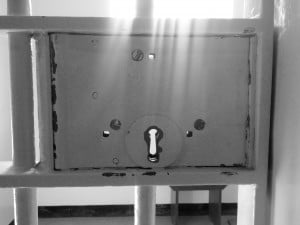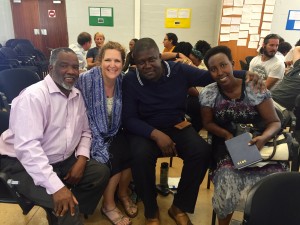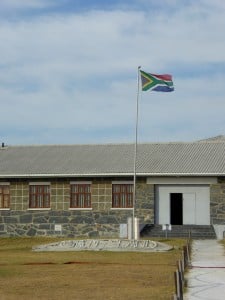Just a note… Our church community is doing an Advent series entitled “Unwrapping Jesus.” We started with an Easter story with Jesus as Savior, moved to Palm Sunday with Jesus as Revolutionary, and yesterday moved to Jesus as Healer with this story of the friends who bring their friend to Jesus for healing. You can also listen to it at bendfp.org/sermons because the manuscript is just what I thought I would say.
There are no words that can adequately address the pain our nation is in today. Nothing can capture the sadness or make it go away nor would I even want it to. We are all sitting on the mourner’s bench. We are aware of a reality that we are able to push away most days that violence against anyone affects and diminishes all of us. Though most of us know no one in Newtown, Connecticut, we all became citizens of Newtown this weekend.
On Friday afternoon I ran into a friend and as we talked about the events in Newtown, he mentioned that already his Facebook feed was filled with blame. People were blaming the violence on the lack of gun control. People were blaming the violence on the lack of God in our schools. Within just a few hours of this tragedy, the blame was beginning to stack up. I noticed in the comments and articles I read, that there was a lot of analysis beginning already. Will President Obama use this to address gun control? Why does Mike Huckabee think this is our nation’s fault? The analysis is stacking up.
I know the temptation. One thing I have realized about myself is how often I want to find some cause or reason for pain when I am confronted by it. I want to identify why someone’s sickness or death or discomfort is someone else’s fault. I want to issue a judgment.
Why? Because it makes it easier for me to handle the pain. If there is a reason, if I can place blame on something or some situation, then I can get some distance from it and I am not responsible for the pain. It makes it easier to walk away.
This is a common response because none of us want to be in pain and none of us want to be at fault. We have seen this response played out over and over again in our political climate, even this week over the fiscal cliff conversation. No one wants to make a move because then they would be taking some sort of responsibility. It is so much easier to blame someone else, to stand off in protest, to find a reason why the whole issue is the other party’s fault than to get in there and get messy with a solution.
Our text today invites us to look at this part of ourselves and invites us into a different way of being in the world, a different way of responding to pain.
Lk. 51:17-26 One day, while he was teaching, Pharisees and teachers of the law were sitting near by (they had come from every village of Galilee and Judea and from Jerusalem); and the power of the Lord was with him to heal. Just then some men came, carrying a paralyzed man on a bed. They were trying to bring him in and lay him before Jesus; but finding no way to bring him in because of the crowd, they went up on the roof and let him down with his bed through the tiles into the middle of the crowd in front of Jesus. When he saw their faith, he said, “Friend, your sins are forgiven you.” Then the scribes and the Pharisees began to question, “Who is this who is speaking blasphemies? Who can forgive sins but God alone?” When Jesus perceived their questionings, he answered them, “Why do you raise such questions in your hearts? Which is easier, to say, ‘Your sins are forgiven you,’ or to say, ‘Stand up and walk’? But so that you may know that the Son of Man has authority on earth to forgive sins”—he said to the one who was paralyzed—“I say to you, stand up and take your bed and go to your home.” Immediately he stood up before them, took what he had been lying on, and went to his home, glorifying God. Amazement seized all of them, and they glorified God and were filled with awe, saying, “We have seen strange things today.”
Luke sets a scene filled with religious leaders and scholars. Picture a group of seminary professors and respected pastors all gathered to hear this young man who is getting a lot of buzz. They’ve spent their entire career dissecting mystery until there is none anymore. They have a religion that is working for them at least on the surface. They are here to analyze, to apply their method, to prove once again that they’ve seen it all.
They are confronted with enormous pain. A man who cannot walk. A person seeking release from all that is binding him.
And they analyze and blame.
It seems hard to believe except we see this played out all day long and we know the temptation in our own hearts. How much easier it is to assess what is wrong with the situation and why we have no responsibility to help.
In stark contrast, we notice the friends. These friends are in some way bearing the pain and paralysis of their friend who cannot walk. It doesn’t say why or how he can’t walk. But he is paralyzed and his friends want to see him healed. So much so that they are willing to tear off a roof and go to extreme measures to get him to Jesus.
And Jesus. Jesus who has all sorts of confidence. He forgives sins. He tells the man to get up and walk. He isn’t afraid to break rules. He isn’t afraid to set everyone straight. He responds to the faith in front of him and releases this man from all that binds him emotionally, spiritually and physically. He isn’t going to place any blame except on those who prefer to assign blame rather than begin healing.
Who will we identify with in this story? What do we do when we are confronted with pain? Will we blame or will we heal?
Healing is often mistaken for curing in our world. Many of us hold back from entering another’s pain because we know we can’t fix it. And finding solutions and cures is important. There is a place for analysis. There are ways to be smart about addressing pain and systemic problems in our world. No doubt. We need doctors and researchers and symposiums to talk about how to solve world hunger, eliminate violence, cure disease. Here in our church, we try to be smart about how we use our resources to respond to global issues and personal needs as well.
But the smartest solutions and most effective cures cannot replace healing. Healing is alongside a cure and in absence of a cure. Healing is choosing to be in relationship where there is pain.
Jesus doesn’t put up with the scholars’ questions and assessments. He doesn’t offer a proof of his divinity. He calls himself the Son of Man rather than the Son of God as if to say that we all, all humans are supposed to respond this way, not just God.
We are invited to be healers. We all can be healers. Made in the image of God, following the path of Jesus, we have more capacity than we can imagine to heal the world.
As many of you know, I returned from Guatemala about two weeks ago. I was a part of a team from our church that was building houses and smokeless stoves but my job was to help with a film crew that is making a short documentary about our church’s relationship with Habitat for Humanity in Guatemala.
Poverty and all of its partners – unfiltered water, inadequate housing, disease, lack of education are major issues in Guatemala and around the world. As a church, we do a lot of “curing”. We install water filters and send money for stoves. We help support students in their education. Such important things make a difference. They help to solve a problem.
But our partnership with Habitat Guatemala is about much more than cures and solutions. We go to the same town twice a year and we go ourselves in addition to sending money because we believe that it is the relationship that brings healing and restoration, not just a cure and that is just as important.
It is important to the Guatemalans and it is important to us. When you go to Guatemala or when you support a scholar or when you hear the stories that come back, you experience healing. Healing comes in the relationships, in the bumps and bruises, in the culture learning, in warm and gracious hospitality, in the partnership that says, “We are going to keep coming back here.”
During this season, we are celebrating the love of a God that did not allow God to stand idly back, placing blame and analyzing our brokenness but that jumped into it in the most helpless form of all: a baby. A baby that would grow to invite and empower us to be healers.
One of the most famous Presbyterians in recent history spoke beautiful words into times like this. Fred Rogers, known as Mr. Rogers said:
“When I was a boy and I would see scary things in the news, my mother would say to me, “Look for the helpers. You will always find people who are helping.” To this day, especially in times of “disaster,” I remember my mother’s words and I am always comforted by realizing that there are still so many helpers – so many caring people in this world.”
Let us be those caring people, those helpers, HEALERS in this world.











